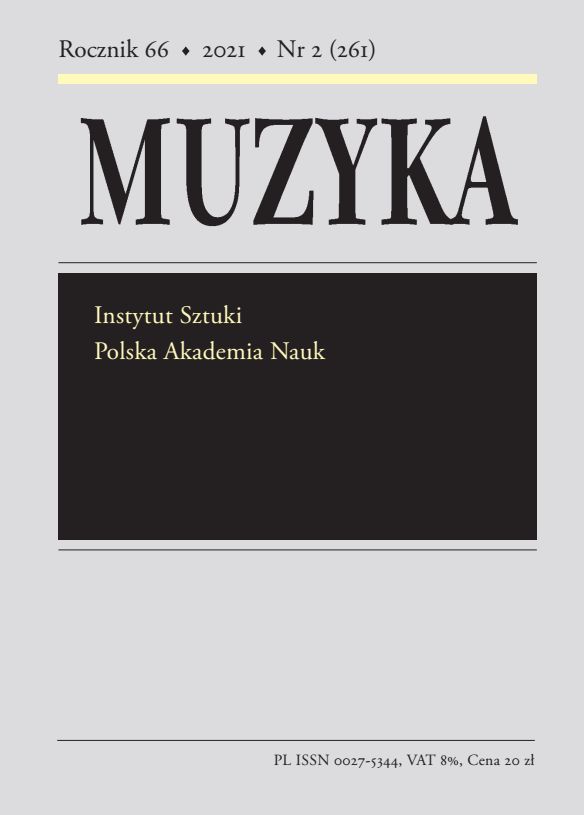„Die Schweizerhütte”, Moniuszkowska prapremiera spóźniona o blisko dwa stulecia: pytania, hipotezy, nowe perspektywy badawcze
‘Die Schweizerhütte’. A Moniuszko World Premiere Delayed for Nearly Two Centuries: Questions, Hypotheses and New Research Perspectives
Author(s): Grzegorz ZieziulaSubject(s): Music
Published by: Instytut Sztuki Polskiej Akademii Nauk
Keywords: Stanisław Moniuszko; comic opera; Die Schweizerhütte; Carl Blum; Mary, Max und Michel; nineteenth-century operatic history
Summary/Abstract: Stanisław Moniuszko’s early two-act komische Oper titled Die Schweizerhütte, previously unknown, was first staged only in 2018, around 180 years after its composition. The German libretto, basically borrowed by Moniuszko from Carl Blum’s opera Mary, Max und Michel, leaves out some sections of the ‘prototype’, adds an interpolation whose authorship has not been established, and changes the stage directions. In my paper, I focus on analysing the overture to Moniuszko’s Die Schweizerhütte, as well as the forms of arias, duets, choruses and finales employed by the composer. The compositional tools he used are well suited to the dramatic concept of the work, as is confirmed by the thematic links between the overture and the multipartite finales of both acts, as well as the introduction of reminder motifs.This German-language work written by the future ‘father of Polish opera’ demonstrates that the barely 20-year-old Berlin-trained newcomer to the operatic scene was already giving serious consideration to the internal integration of his work and was surprisingly mature in his awareness of the principles of musical dramaturgy. Unfortunately, after his return to Vilnius, Moniuszko in all probability did not find favourable conditions for the further development of his talent. Yet while the so-called operettas that he wrote in the early 1840s with singing actors and a wide audience in mind could hardly be considered a continuation and extension of the ambitious ideas already discernible in Der Schweizerhütte, those ideas were probably echoed in his first opera seria, titled Twardowski (now lost), and are certainly fully manifest in the Vilnius version of his Halka.It is increasingly evident that Moniuszko’s operatic style was closely related from the very start not only to the local tradition (to models elaborated by Stefani, Elsner and Kurpiński), but also to the poetics of European opera, primarily the Italian and French models. Moniuszko absorbed those influences, however, via German musical, theatrical and literary culture. His time in Berlin and his earliest (German-language) attempt at an operatic work that he undertook there thus played a key role in the complex process of the absorption and synthesis of various models of operatic dramaturgy. This ultimately helped the composer attain artistic maturity.
Journal: Muzyka
- Issue Year: 66/2021
- Issue No: 2
- Page Range: 3-36
- Page Count: 34
- Language: Polish

